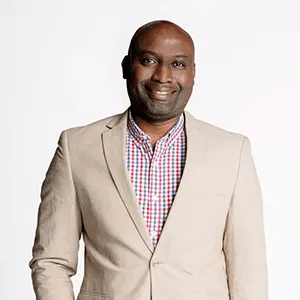Why Good People End Up in Bad Relationships
|
Getting your Trinity Audio player ready...
|
Have you ever wondered why good people often end up in bad relationships? It feels unfair. Two kind and responsible people, both with the best intentions, still find themselves struggling with distance, frustration, or even disconnection.
Dr. Carlos Todd, conflict resolution specialist, explains that being a good person is not the same as creating a good relationship. Paying bills, raising children, and handling responsibilities may keep life organized, but they do not guarantee closeness or emotional fulfillment.
This blog expands on Dr. Todd’s insights from Conflict TV, along with practical tools and research, so you can recognize these hidden traps and avoid them in your own relationships.
Why Good People End Up in Bad Relationships
As Dr. Todd points out, “Two good people come together, both interested in the well-being of the other person, and they want to make it work. That is the intent. Unfortunately, it is not enough.”
The problem is not effort; it is misdirection. Many couples put all their energy into responsibility, assuming that paying bills, cooking meals, or managing children is the formula for a strong bond.
Responsibilities matter, but they are the baseline. What actually strengthens a partnership is connection: the feeling of being loved, valued, and heard. Without it, even good people unintentionally create bad relationships.
Responsibilities Do Not Equal Connection
It is easy to believe that doing the “right things” should be enough. But a strong relationship requires more than routines.
Research shows that nearly 60 percent of individuals in unhappy relationships admitted they ignored early signs of emotional disconnection. This shows that responsibilities alone do not fill the need for intimacy.
As Dr. Todd explains, there is an assumption that meeting responsibilities guarantees stability, but “it will not be” if partners neglect emotional needs.
The Missing Ingredient: Emotional Value
People want to feel chosen and appreciated, not just cared for. Dr. Todd highlights that “good people need to make sure that their partner feels loved, valued, heard. That is how good people create good relationships.”
When partners assume that responsibility is enough, the relationship slowly loses warmth. Over time, one or both partners may feel invisible, which can lead to feelings of resentment or disconnection.
The solution is to actively show love, celebrate each other’s presence, and practice daily habits of appreciation.
Why Am I Bad at Relationships?

If you have ever wondered, “Why am I bad at relationships?”, the issue often lies not in who you are, but in the skills you lack.
Being good at responsibilities is different from being good at emotional connection. Many people were never taught how to listen deeply, repair conflict, or express love consistently. Without these skills, even good people can feel like they are “bad at relationships.”
This is why investing in tools and structured resources matters. They guide you to build the skills needed to make kindness translate into connection.
Why People Stay in Bad Relationships
If good people sometimes create bad relationships, another question arises: why do people stay in bad relationships even when they know things feel wrong?
Often, the answer is fear: fear of being alone, fear of starting over, or fear of breaking apart a family. A survey found that over 40 percent of people remain in unhealthy relationships because of fear of loneliness or dependence.
This shows that staying does not always mean love is strong. It may mean that the courage to change is missing.
How to Improve Communication Skills in a Relationship
- Use “I” statements instead of “you always…”
- Practice active listening and repeat back what you’ve heard.
- Give your full attention and avoid distractions.
- Set aside a weekly check-in to discuss issues calmly.
These simple steps lower defensiveness and create trust.
Signs of Emotional Disconnection in a Relationship
- Intimacy and affection decrease.
- Conversations feel shallow or surface-level.
- Humor and shared joy disappear.
- Partners withdraw during stress.
Emotional distance usually grows slowly, so catching these signs early matters.
How to Tell if You’re in a Bad Relationship
| Question to Ask | Healthy Relationship | Bad Relationship |
|---|---|---|
| Do I feel safe being myself? | Yes | No |
| Are my needs respected? | Consistently | Rarely |
| Do conflicts get resolved? | Most of the time | The same fights repeat |
| Do I feel supported or drained? | Supported | Drained |
If your answers fall mostly in the right column, it’s worth reevaluating.
Effective Conflict Resolution Techniques
- Take time-outs when arguments get heated.
- Begin conversations gently instead of accusing.
- Look for compromise so both partners feel heard.
- End disagreements with a ritual, like a hug or kind words, to reconnect.
Tools That Help Good People Create Great Relationships

Being good is not enough. The right skills and resources can turn good intentions into a real connection.
The F.I.G.H.T. Plan: A Revolutionary Couples’ Communication and Conflict Resolution Workbook
This conflict resolution workbook helps couples develop essential skills for managing disagreements. It teaches how to replace blame with empathy, listen more effectively, and de-escalate arguments before they spiral. It is a structured way to turn conflict into a deeper understanding.
Couples Conflict Toolkit
Practical exercises like intentional pauses, grounding strategies, and honesty practices help shift fights from destructive to constructive.
Marriage or Relationship Classes
Workshops and marriage classes provide a safe space to practice communication and repair skills that many couples never learned.
These resources turn the idea of “being good” into the practice of being emotionally available, skilled, and connected.
Building Habits That Nurture Connection
Good relationships are built daily. Habits like expressing gratitude, creating shared rituals, and responding positively to your partner’s bids for attention all reduce unnecessary conflict.
Instead of simply covering responsibilities, prioritize connecting. Celebrate small wins, validate feelings, and learn to listen with full attention. These practices prevent the slow erosion that turns good people into distant partners.
Warning Signs of an Unhealthy Relationship
- Criticism, contempt, or constant put-downs
- Emotional withdrawal or stonewalling
- Controlling or manipulative behavior
- Feeling like you walk on eggshells
- Patterns of emotional or physical abuse
These red flags explain many cases of why good people end up in bad relationships.
Long-Term Effects of Staying in a Bad Relationship
Remaining in the wrong relationship erodes confidence and increases stress. Over time, people lose touch with their identity and find it harder to trust themselves or others. The longer you stay, the harder it becomes to break free.
Facing the Fear of Loneliness
Many stay because being single feels terrifying. But solitude can be reframed as opportunity: rediscovering hobbies, focusing on personal growth, and strengthening friendships. Choosing peace over dysfunction is always the healthier option.
Early Warning Signs in New Relationships
- Dismissive responses to your feelings
- Escalation of small disagreements
- Inconsistent words and actions
- Avoidance of conversations about the future
Spotting these red flags early prevents repeating old cycles.
FAQs
1. Why do good people create bad relationships?
Because they focus on responsibilities instead of emotional connection, leaving partners feeling unseen and undervalued.
2. Why am I bad at relationships even though I try?
It often means you excel at tasks but need to develop skills in communication, emotional expression, and conflict repair.
3. Why do people stay in bad relationships?
Fear of loneliness, financial concerns, or cultural expectations often keep people in relationships that feel unhealthy.
4. How can good people repair a struggling relationship?
By practicing daily appreciation, using resources like conflict resolution workbooks, and learning structured conflict tools such as The F.I.G.H.T. Plan.
5. What is the first step to preventing bad relationships?
Prioritize connection over responsibility. Make your partner feel valued, loved, and heard on a daily basis.
Conclusion: Turning Goodness Into Lasting Love
Understanding why good people end up in bad relationships is the first step to breaking the cycle. Being good is not enough if you forget the foundation of emotional connection.
Responsibilities are the starting point, but connection is the glue that holds love together. With tools like The F.I.G.H.T. Plan: A Revolutionary Couples’ Communication and Conflict Resolution Workbook, couples conflict toolkits, and marriage classes, good people can transform their relationships into fulfilling partnerships.
When kindness is paired with communication and emotional presence, good people stop creating bad relationships and start building great ones.
References
- Psychology Today. (n.d.). Articles on relationships. Retrieved from https://www.psychologytoday.com/intl/articles/relationships/
- Verywell Mind. (n.d.). Why people stay in unhealthy relationships. Retrieved from https://www.verywellmind.com/why-people-stay-in-unhealthy-relationships-5187376

